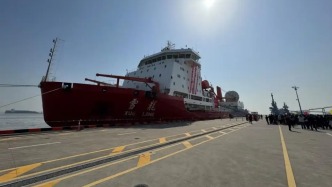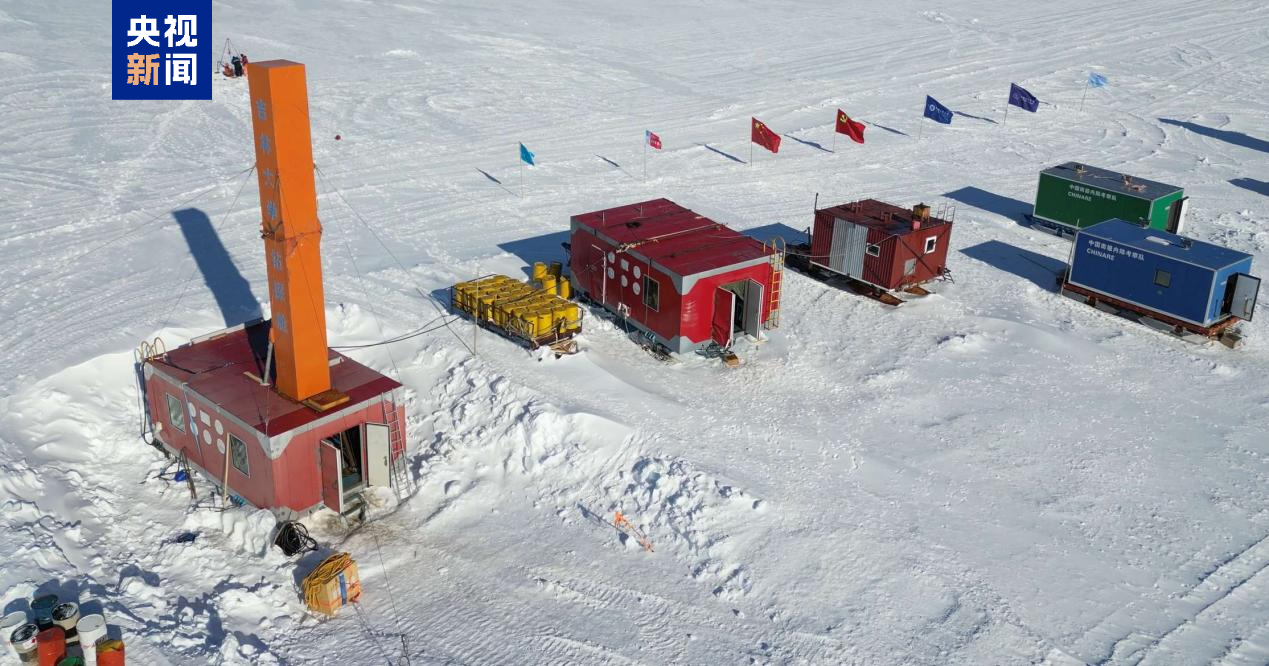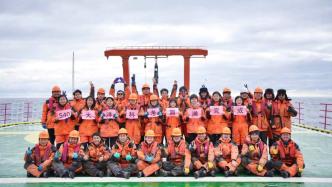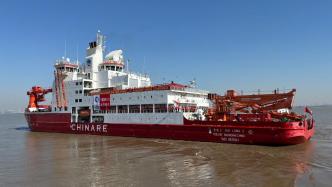
In early April, the Southern Ocean had entered autumn, and the sea conditions were getting worse day by day. The wind roared and the waves howled, the ship tilted back and forth, and the expedition team members were shaking without knowing the world. The sky was gloomy, and the newly formed ice on the sea surface was like lotus leaves, drifting with the waves. The further south they went, the larger the ice disks became, gradually forming blocks and forming a long ice field. With sharp friction sounds, the "Xuelong 2" struggled to break the ice and move forward.
At this time, the research vessels of previous voyages have already headed north and set out on their return journey. But this year, in this season of growing darkness, the Xuelong 2 still sailed south, crossed the westerly belt again, and arrived at the Ross Sea in Antarctica, marking the beginning of my country's first autumn scientific expedition in the Southern Ocean.
Walker, a 73-year-old American expedition member employed by Shanghai Jiaotong University, has been studying the Ross Sea for 40 years. But he has never been here in the autumn of the southern hemisphere. Why did he come here to investigate when the sea conditions and weather were so bad?
He Jianfeng, deputy leader of the 41st Chinese Antarctic Expedition and chief scientist of the Ross Sea Joint Voyage, said that the Antarctic sea conditions are better in summer, which is the "golden season" for scientific research, so the survey data is relatively rich. However, the international understanding of the Southern Ocean in other seasons is extremely scarce, and it is impossible to form a scientific and systematic understanding of high-trophic-level organisms such as penguins.
As an important formation site of Antarctic bottom water and an area rich in biological resources, the Ross Sea is one of the hot spots for Antarctic marginal sea research. "Carrying out autumn Southern Ocean surveys here will help to obtain scarce data, fill the gaps in field observations and experiments on the dark ecosystem of the Antarctic marginal sea, and gain a deeper understanding of how key populations such as krill, penguins, and seals overwinter, providing a scientific basis for decision-making for ecological protection and rational use of biological resources," said He Jianfeng. "Inviting scientists from the United States, Britain, Norway, Australia, Thailand, Malaysia and other countries to participate in the cooperation will also help enhance the international influence of my country's polar scientific research."
In autumn, the nights in the Southern Ocean grow longer, the sunlight decreases, and the sunlight transmittance decreases due to the formation of sea ice, so the Southern Ocean gradually enters the "dark season". Braving the extreme cold, breaking through the wind, waves, and ice, what are the concerns of this "deep into the darkness" ocean survey?
Cao Shunan, chief assistant of the Ross Sea joint voyage and captain of the comprehensive team, introduced that in addition to the traditional mid-water fish trawl, krill trawl, CTD (temperature-salinity-depth profiler) water sampling, bird and mammal observation, this survey operation project also includes particle size spectrum observation system, wave-ice buoy observation, lotus leaf ice buoy observation, etc. The scientific expedition team from 9 countries will conduct a comprehensive investigation in ecological hotspots such as the Aislin Shoal and the western bottom water outflow area, focusing on the sea-ice-air interaction, ecosystem processes, overwintering survival strategies of biological populations, and carbon burial in the "dark season".
Take the survival strategy of biological populations as an example. "Just like 'big fish eat small fish, small fish eat shrimp', there is a complete and stable food web in the Antarctic ecosystem." Cao Shunan said that krill and other zooplankton feed on phytoplankton, which are themselves food for animals such as penguins and seals. These "porters" are directly involved in the transfer of energy from producers to higher trophic levels.
However, in the "dark season", the phytoplankton that produces nutrients through photosynthesis will gradually decrease. How can the krill that feed on them fill their stomachs? How can penguins, seals and other animals survive the long and harsh winter? These questions need to be further studied in scientific expeditions.
Everything is unknown, but difficulties must be faced: freezing of equipment in extremely cold conditions leads to failure of water sampling and data fluctuations; ice in the trawl net causes the net to break; and the team members working on the stern deck are physically exhausted in the cold and strong winds...
"The harsh environment does bring a lot of difficulties to scientific research operations. But we summarized while working, adjusted the order of operations, and improved the working methods. We have transitioned from the initial fear and confusion to the current orderly and calm response." He Jianfeng said that the first step is always difficult, but as long as you take it, you will gain something. This autumn joint voyage will be a rare practice for us to conduct scientific research in the Southern Ocean, optimize marine operating equipment in extremely cold environments, and build an international scientific research platform.


